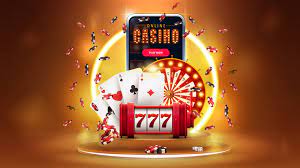Slot machines have evolved from humble mechanical devices to the cutting-edge, digital systems that dominate casinos today. Their mechasultan, both in design and impact, mirrors the technological advancements of the last century and their influence on modern entertainment. This article explores the history, development, and significance of slot machines in the gambling industry.
The Birth of the Slot Machine
The first slot machine, known as the “Liberty Bell,” was invented by Charles Fey in 1895 in San Francisco, California. This machine was revolutionary because it automated the process of slotting coins and rewarding payouts, which was previously handled by human attendants. The Liberty Bell had three spinning reels with symbols such as horseshoes, diamonds, and the iconic Liberty Bell, which gave the machine its name. It became an instant hit and laid the foundation for the future of slot gaming.
However, it wasn’t until the 1960s that slot machines began their widespread adoption in casinos. With the advent of electronic machines, slot machines became more reliable, efficient, and capable of offering larger payouts. The introduction of the “money hopper” further streamlined the process, making it easier for casinos to handle large amounts of coins.
The Rise of Video Slots
The 1970s and 1980s marked the dawn of the video slot machine era. These machines replaced mechanical reels with video screens, offering more vibrant visuals, creative themes, and a greater variety of game features. The first video slot machine, “Fortune Coin,” was introduced by Si Redd in 1976 and was soon followed by other manufacturers jumping on the bandwagon.
Video slots offered new and exciting features, including bonus rounds, free spins, and the chance to win progressive jackpots. The success of video slots helped casinos increase their revenue and solidified slots as the most popular casino game, surpassing traditional table games like blackjack and poker.
The Age of Progressive Jackpots
One of the most significant innovations in slot machine history has been the introduction of progressive jackpots. These jackpots grow larger as players contribute a small percentage of their wagers to a pool. The prize continues to grow until a lucky player hits the jackpot, which can often be worth millions of dollars.
The first progressive jackpot was introduced in the 1980s, and since then, these massive prize pools have made slots even more popular, as they offer the potential for life-changing sums of money. Notable examples include the MegaBucks machine in Las Vegas, which regularly features jackpots worth tens of millions of dollars.
The Digital Revolution: Online Slots
With the rise of the internet in the late 1990s, the world of slot machines underwent another major transformation. Online casinos began offering digital versions of traditional slot machines, giving players the ability to play from the comfort of their homes. These online slots quickly gained traction, and the industry saw the development of hundreds of new game variations.
Online slots offer many advantages over their land-based counterparts. Players can access a wide variety of themes, from fantasy and adventure to movies and TV shows, and enjoy games with advanced graphics, animations, and sound effects. The convenience of online casinos also allowed players to engage in slot gaming at any time, without the need to visit a physical casino.
Mobile Slots: The New Frontier
The most recent chapter in the history of slot machines is the rise of mobile gaming. The proliferation of smartphones and tablets has enabled players to enjoy their favorite slots on the go, anywhere and anytime. Mobile slots offer the same features and benefits as their online counterparts, including access to progressive jackpots, bonus rounds, and innovative game mechanics.
Mobile technology has also opened up new avenues for game developers to create even more immersive and interactive slot experiences. The use of virtual reality (VR) and augmented reality (AR) in slots is also starting to gain traction, and these technologies promise to further revolutionize the gaming experience.
The Future of Slot Machines
As technology continues to evolve, so too will the world of slot machines. The introduction of blockchain technology, for example, could offer greater transparency and security in online gaming. Additionally, the integration of artificial intelligence (AI) may lead to more personalized gaming experiences, where the game adjusts based on the player’s preferences and behavior.
Moreover, new gaming innovations, such as skill-based elements, are likely to attract younger audiences who prefer games that offer more control over the outcome. The merging of traditional gambling with video games could open up exciting new possibilities for the future of slots.
Conclusion
From mechanical reels to online platforms and mobile apps, the slot machine has undergone tremendous change since its inception. It remains a cornerstone of the casino industry, providing entertainment and excitement to millions worldwide. As technology continues to advance, it’s clear that the evolution of slot machines is far from over, and their place in the future of gaming is as secure as ever. Whether you’re playing on a casino floor or from your phone, slots will undoubtedly remain a vital part of the gambling landscape for years to come.

More Stories
The Fascinating World of Slot Games: From Mechanical Reels to Digital Realms
The Evolution and Appeal of Slot Games in the Digital Era
Marketing in the Modern Era: Strategies, Trends, and the Path to Business Growth